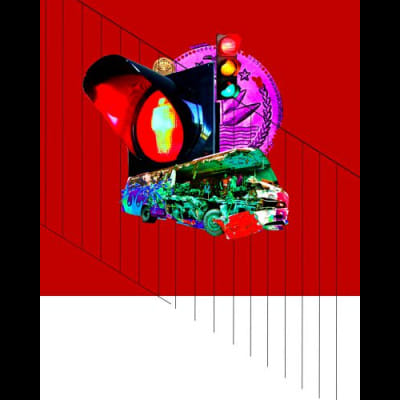Right to redress

Within the span of just four days in January, the country saw five deaths in road accidents where four of the victims were children. What followed was a High Court order that held the government responsible for the losses.
On February 11, the High Court issued an order that the secretaries of home affairs and road transport, and the BRTA chairman have to pay BDT 100,000 to each of the victims' families as interim compensations.
The authorities were asked to respond as to why they would not pay BDT 50 lakhs. In response to the HC rules, the police (the inspector general of police and additional police commissioners of the districts where the accidents took place) have to submit reports containing details of the victims, the vehicles, their drivers and owners.
Despite being shrouded by doubt, given the lengthy nature of such cases (such as that of journalist Mozammel Hossain Montu or filmmaker Tareque Masud), the HC order stands out as it demonstrates to the masses that the government can, and should, be held liable for losses of lives in road crashes.
The High Court issued the order and rules after hearing a public interest litigation filed by Bangladesh Legal Aid and Services Trust (BLAST).
Barrister Md Abdul Halim of the Supreme Court, who is representing BLAST, says, “Every citizen has a right to life and the state is the custodian of life—as guaranteed by the constitution. And the government is the custodian of the constitution. So, the government must be held liable if negligence of its functionaries results in loss of lives.”
“The lives cannot be brought back but the compensation is a form of condolence that must be offered. Breach of public duties is not allowed by the constitution,” he adds.
According to Barrister Halim, Bangladesh currently lacks any specific guideline on compensation for victims of road accidents. The Road Transport Act (RTA), which was passed by the parliament in October last year following student protests demanding road safety, is yet to be implemented as no gazette notification has been published till date.
In such a circumstance, the High Court order comes as a respite. But the question remains: how come only the government is being penalised and transport owners, who appointed unskilled drivers for unfit vehicles in the first place, get away scot-free?
Taqbir Huda, a research specialist at BLAST, flags some loopholes in the RTA and explains why the Motor Vehicle Ordinance 1983 should have been modified or enforced instead of being summarily replaced.
“The Ordinance had a provision on formation of a Motor Accidents Claims Tribunal to provide a speedy system through which victims could sue not only the negligent drivers but also the owners and their insurers. But Chapter 10 of the 2018 Act (which deals with compensation) replaces the victim's right to sue vehicle owners with the right to apply for 'financial aid' from a rather charitably termed Financial Aid Fund (Arthik Shohayota Tohobil). Funds are given out of kindness while compensations are realised through legal procedure,” says Huda.
Terming the drivers as “symptoms” and owners as “causes” of the fatalities, he adds, “Under RTA, the driver is slapped with a BDT 500,000 fine which is likely to remain unrealised. The driver cannot pay such an amount but the owner can! The RTA ignores the owner's vicarious liability. If the owners are given the notion that no penalty would follow them in case of accidents, they are likely to be least bothered about appointing skilled drivers and checking the fitness of vehicles.”
When asked why the government dissolved the Ordinance, the law practitioner argues, “Because it was more focused on passing a new law rather than enforcing or modifying the existing one. Doing the latter would have showed their failure.”

Victims, especially when they are from lower-income groups, often do not know that they are entitled to compensation. “In most cases, the vehicle owners try to settle the matter out of court by giving a paltry amount to the victims and get their own way,” says Barrister Bilkis Akter Mily, who represented Catherine Masud, widow of Tareque Masud, during her legal battle in 2017.
“One needs to start a case under the MVO six months into the accident. At first, we were confused about which law we would pick to initiate Catherine's case. We found MVO to be the best and her case was the first one filed under the Ordinance that reached the Appellate Division,” says the Supreme Court lawyer, while stressing on the need of publicising the law to make the masses aware of their rights.
Interestingly, as per section 1(2) of the Road Transport Act 2018, any law will be in force only after the government publishes it through a gazette notification—which it is yet to do for RTA. This means we are still under the mode of MVO 1983 which offers “compensation” not “funds.”
***
The maiden compensation order for death in road accident was given in 2014 to the heirs of ex-news editor of the Daily Sangbad.
A mini-truck of Pepsi Cola ran over Mozammel Hossain Montu in front of Ananda Bhaban at Kakrail in Dhaka on December 3, 1989. Badsha Mia, a driver of the company, was on the wrong side.
Failing to ever gain consciousness, Montu died at Dhaka Medical College Hospital 13 days after the accident. His wife Professor Rawshan Akter filed a case with the sub-judge court-3 in Dhaka on January 1, 1991. Noted jurist and former attorney general Aminul Huq conducted the case under the Fatal Accidents Act, 1855 for the journalist's family free of cost, according to newspaper reports.
After a legal battle spanning 26 years, the Appellate Division of the Supreme Court ordered Bangladesh Beverage Industries Ltd, the owner company of the vehicle responsible for the accident, to pay BDT 1.69 crore as compensation to the family members of Montu. The order is yet to be complied with.
“Professor Rawshan has not gotten a penny in 27 years because an appeal over the amount is still pending at the Supreme Court. She is severely frustrated and says no one should ever spend money from their own pocket to get compensation,” Barrister Halim says when asked about landmark cases in connection to compensations.
The second compensation order was made after the demise of renowned filmmaker Tareque Masud and former ATN News CEO Mishuk Munier in a road accident near Manikganj in 2011.
In December 2017, the High Court awarded Tareque's family BDT 4.61 crores in damages from the bus owners, the bus driver, and one insurance company. Catherine had filed the case before the Motor Accidents Claims Tribunal, Manikganj. She claimed damages for herself, her minor son, and Tareque's mother. The compensation was ordered for loss of dependency, loss of affection, care and nursing, medical expenses, and damage to property.
Back then Catherine termed the case as a “ground-breaking attempt” to bring the long-neglected MVO (and tort law in general) to public notice but in an email on February 15, she wrote to this correspondent that she had not received any of the compensation money awarded by the court yet.
“The case hasn't quite gone on appeal yet, we are still seeking leave (permission) to appeal (regarding the amount awarded and the issue of the insurer's liability) as are the owners of the buses and the driver,” wrote her lawyer, Barrister Sara Hossain.
The third high-profile case was that of Rajib, who lost his right hand after it got stuck between two speeding buses of BRTC and Sajan Paribahan, which were trying to overtake each other in the Bangla Motor area of Dhaka on April 3 last year. The third-year student of Government Titumir College died at Dhaka Medical College Hospital, 13 days after the accident.
On May 22, the Supreme Court stayed the High Court order that directed the bus owners to give one crore taka to his family and also asked the HC to form an independent committee to assess the liabilities for the accident. No update in the case has surfaced ever since.
The last order of accident compensation was in the case of the deaths of two young students of Shaheed Ramiz Uddin Cantonment College. Dia Khanam Mim and Abdul Karim Rajib were killed as a Jabal-e-Noor bus ploughed through a crowd while competing with another bus of the same company on Dhaka's Airport Road on July 29 last year. The two buses were immediately torched and what followed was a wave of Dhaka-wide protests by students in demand of justice for their fellows and road safety.
The Supreme Court on October 4 upheld a High Court order that directed Jabal-e-Noor Paribahan to pay BDT 500,000 to each of the two students' families.
At the end of the day, the question remains why a country like Bangladesh, which has the highest rates of road fatalities in the world, still lacks a robust law in this regard. To curb road accidents (if they are still to be called 'accidents'), there needs to be a law that makes both the government and transport workers and owners accountable.
A balanced system is necessary where insolvent, illiterate people lacking legal knowledge, who cannot afford lengthy, costly legal battles, should be given interim relief through funds.
But should the short-term relief replace the long-term legal process and give impunity to vehicle owners? No. Authorities must make sure that compensation orders are executed without delay and not lost in prolonged legal battles to save the victims from further hassle.
Promiti Prova Chowdhury is a sub-editor at The Daily Star.

 For all latest news, follow The Daily Star's Google News channel.
For all latest news, follow The Daily Star's Google News channel. 



Comments